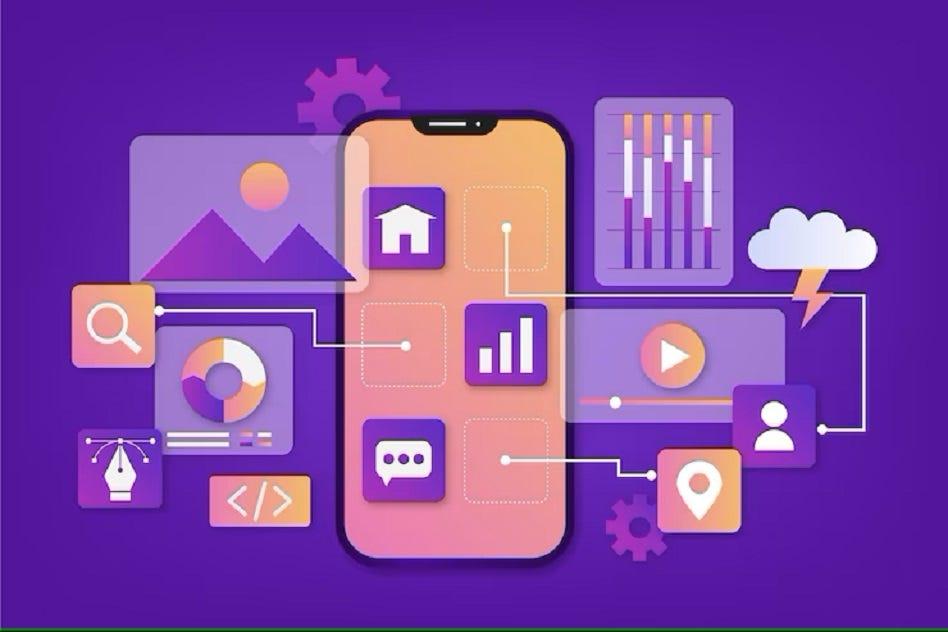Native apps, hybrid apps, and web apps are the three primary app types that can be produced when it comes to mobile app development. The best type of app for your project will depend on several factors, including your budget, timeline, and target audience. Each of these app types has advantages and disadvantages. We will explore deeper into the distinctions between native, hybrid, and web apps in this article.

Native apps
Native apps are created specifically for a given mobile platform, such as iOS or Android, using the platform’s provided programming languages and development tools. For instance, you would use the Swift programming language and Apple’s Xcode development environment to create a native iOS app.
The best user experience is one of the native apps’ biggest benefits because they are made to work in harmony with the hardware and operating system of the device. As a result, native apps can benefit from functions like the camera, GPS, and push notifications. For applications that use a lot of processing power or data storage, native apps can also be optimized for performance and speed.
The fact that native apps typically cost more money and take longer to develop than other kinds of apps is one of their main drawbacks. This is because each platform you want to support requires a unique app, and each app needs its development, testing, and maintenance processes.
Hybrid Apps
Native and web apps are combined to create hybrid apps. They are created using web development languages like HTML, CSS, and JavaScript, and are then packaged inside native containers that give them access to the hardware and operating system of the target device. When compared to developing separate native apps, hybrid apps can be deployed on various platforms using a single codebase, which can save time and money.
Hybrid apps can offer a good balance between price, time-to-market, and performance, which is one of their benefits. The same hardware and operating system features that native apps have access to, like the camera, GPS, and push notifications, are also available to hybrid apps. Hybrid apps can also be easily updated, which is crucial for apps that must be regularly updated with new features and bug fixes.
Hybrid apps might not perform as well as native apps, however, and they might not have access to all of the hardware and operating system features that native apps do. Additionally, hybrid apps might not have a consistent user interface across all platforms, which might detract from the user experience.
Web Apps
Web apps are mobile-optimized websites with interfaces that closely resemble those of native apps. They can be accessed through a mobile browser like Safari or Chrome and are created using web technologies like HTML, CSS, and JavaScript.
When compared to native or hybrid apps, web apps have the advantage of being developed more quickly and inexpensively. This is so that they can be used on any device with an internet connection since web apps are essentially just websites. Web apps don’t need to be downloaded and installed on the user’s device, so they don’t need as much upkeep and updating as native or hybrid apps.
